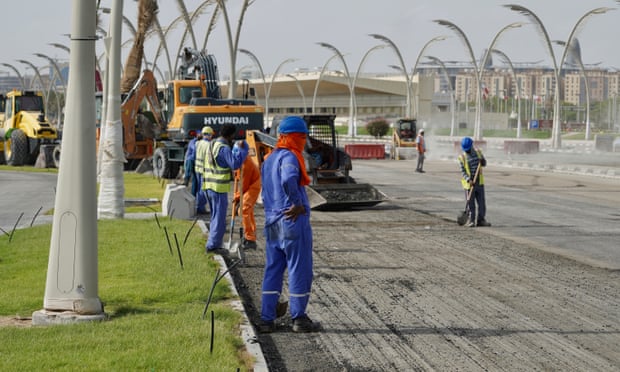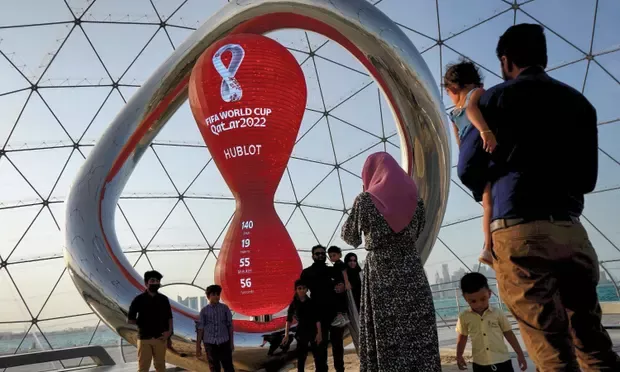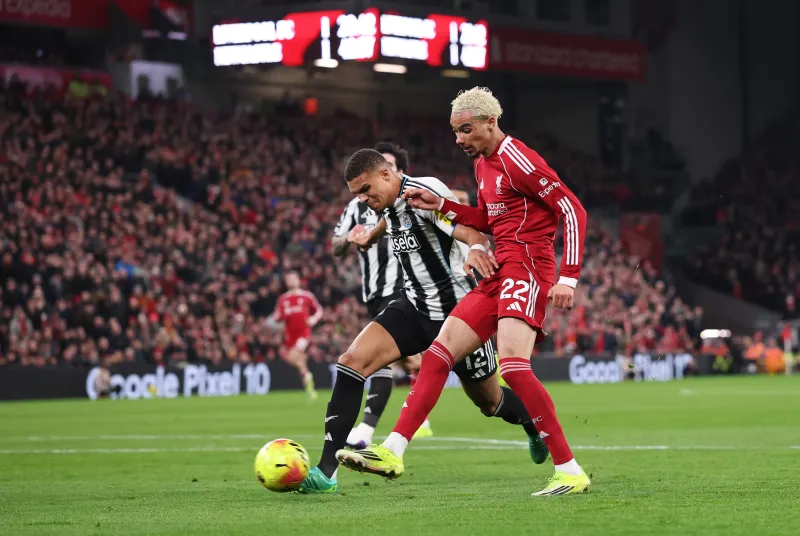Thousands of poorly paid migrant workers in Qatar are being forced to return home before the World Cup, leaving many fearing they will be left jobless, unable to support their families and deep in debt. In some cases, workers say they have been sent back before the end of their contracts or without receiving their full salary or allowances. The moves to send migrant workers back to their home countries before the beginning of the Fifa tournament appears to be linked to a government circular, published last year and seen by the Guardian, which ordered some contractors to complete all works by mid-September and prepare a plan for workers’ leave that “maximizes the reduction in the number of workers in the country” in the run-up to the World Cup.
On the sweeping promenade that skirts the bay in Doha, a red clock in the shape of Qatar’s World Cup logo counts down the days until the tournament begins. When the Guardian visited in the summer, hundreds of migrant workers dressed in blue overalls were working in the stifling humidity to complete a revamp of a popular walkway and the road alongside it, known as the Corniche, which is expected to be a destination for thousands of tourists and football fans once the tournament begins.
The Guardian interviewed 25 labourers employed on the Corniche. Most said they had expected to be in Qatar for two years but were being sent home far sooner – in some cases after just 10 months. Many of those interviewed have now returned to their own countries. Some workers who spoke to the Guardian said they had not been working long enough to repay the huge sums – equivalent to four or five months’ basic salary in Qatar – that they borrowed to pay recruitment agents in their home countries to secure their jobs in Qatar.
“We don’t want to go back. We’re poor so we need to work,” said a Nepali worker, who said he had been forced to pay the equivalent of almost £1,000 in illegal recruitment fees to secure the job. “I have not yet paid back the fees. I will be in loss if I’m sent back.” Others were in a state of confusion, saying they were being sent home but had been told they may be recalled after the World Cup. They are now facing up to six months with no salary while they wait to see if they will be able to return. All the workers interviewed said they had no choice but to leave. “Many have already been sent and others are on the list. If your name is on the list, you have to go,” said one. Many blamed the World Cup for the sudden end to their work.

“Everyone will be sent back because of the World Cup. It doesn’t matter how long you have been here,” said one. “What can I do? I’m helpless.” Ansar Ali* said he paid an agent in India 100,000 rupees (£1,050) to secure his job. To afford the fee, he borrowed money at a steep 10% interest rate, but calculated that over two years he could repay the debt and still earn enough to support his wife and two sons. But only 10 months after arriving in Qatar, he was now expecting to be sent home at any moment. “I don’t know when I’ll be sent, but I know I’ll have to go. Two or three of my friends have already been notified,” he said.
“How will I survive when I go back? How will I pay back my debt?” he asked as he walked to a currency exchange to swap Qatari riyals for Indian rupees. The workers interviewed by the Guardian are employed by UrbaCon Trading & Contracting Company (UCC) and InfraRoad, both subsidiaries of UCC Holding, on a project to upgrade the Corniche. Most of the affected workers appear to have been hired on short-term “project visas”, but say they were told they would be employed for at least two years. Letters from InfraRoad offering workers jobs in August 2021 – after the government circular was published – appear to back this up. The letters promise annual leave and a return air ticket after two years, and require a two-month notice period after two or more years of service.




